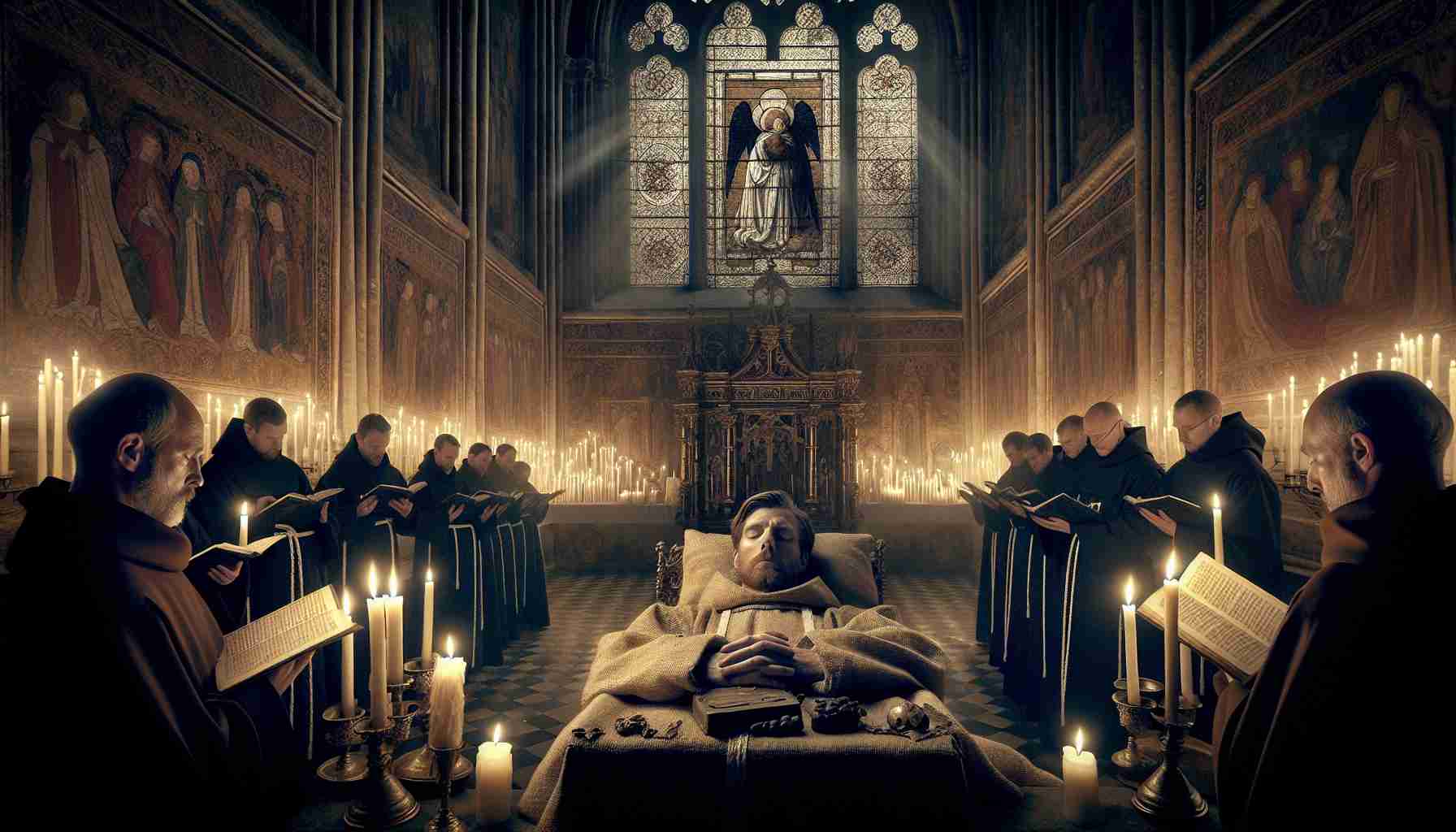

The morning bells of the Abbey of Saint-Denis tolled with a mournful cadence, echoing across the hazy plains of Île-de-France. Cloaked figures moved silently beneath the stone arches, their faces etched with sorrow. Word had passed through cathedral crypt and peasant village alike—Robert II, King of the Franks, had died.
Inside the abbey’s shadowed nave, candlelight flickered upon the gilded reliquaries of saints and kings. Monks in black habits chanted psalms, their voices rising with Psalm 101: “I will sing of mercy and justice; to You, O Lord, I will sing praises.” The hymn was one of Robert’s own compositions, and its ancient melody—or perhaps Robert’s soul—seemed to linger in the air like incense.
He had been born to rule, though his father Hugh Capet’s grasp on the throne was new and uncertain. The Capetian line was young then, and the title King of the Franks still pulled against the unruly limbs of dukes and counts who bowed in name only. Yet from the first, Robert did not wield his authority with an iron grasp but with hands outstretched in prayer.
In his youth, he had studied under Gerbert of Aurillac, later Pope Sylvester II. The king’s mind had soaked up Latin verse and sacred law as eagerly as a field drinks rain. By the time his crown was placed upon his head, Robert was already more priest than prince. Too much so, some whispered. He dressed plainly. He fasted when nobles feasted and gave coin to lepers even as his barons starved for recognition.
Even his marriages stirred scandal—the Church had annulled the first, condemned the second, and hesitated before approving the third. Still, he professed loyalty not to Rome nor to courtly expectations, but to God alone. When political necessity forced him into cruelty—as when rebellious vassals were excommunicated or towns razed—his conscience burned like a cauterized wound.
Yet the land was not lawless. It was under his reign that monastic life flourished. Cluniac reforms spread as Robert poured gold and reverence into abbeys. Scriptoria lit glowed deep into night, where monks copied not just Gospels but the hymns the king himself had written. “Lord, make my rule just, my judgment merciful,” one read, now bound in tapestries of faded ink.
And though his hands bore not the sword as eagerly as other kings, they gathered the broken. He gave sanctuary to the poor, endowed hospitals, washed beggars’ feet during Lent. There was a story, whispered among the Sisters of Chelles, of the king pausing mid-procession to cradle a blind child. “You see more than I ever shall,” he had said, and wept.
But mercy did not ward off war. His own sons turned against him. Hugh Magnus, his eldest, raised banners of rebellion, urged on by grasping lords in Burgundy and Aquitaine. Fires scorched the fields of Chartres, sulfur stung the air where brother fought father.
Still, Robert would not curse his son. “Better a crown cracked than a soul lost,” he murmured, turning once more to prayer. When Hugh died suddenly, the court choked on relief, but Robert only knelt longer. Some said he had seen it in a dream the night before—a black-winged angel passing over his bed carrying Hugh’s name.
Now, in Saint-Denis, his body lay in repose before the high altar, robed not in jeweled splendor but in the sackcloth of penitence he had requested. Around him, the silence of marble saints and the distant toll of Parisian bells bore testimony to his life.
Count Odo of Blois stood beside the bier, arms folded. Despite a lifetime of rivalry, he could not help but marvel. “He prayed nations still,” he muttered.
Decades later, the stones of Saint-Denis would groan under the weight of kings buried in his wake. Sculptures carved with lilies and swords would surround him, but none would chant hymns with his hand, nor inscribe divine justice into the margins of governance as Robert had done.
He did not bequeath an empire gilded in conquest. He left a realm straining toward holiness—fractured, yes, but seeded deep with devotion.
The final chant faded, and a whispered benediction swept the chamber.
Later, a monk recorded the mood in fading ink upon a palimpsest already bearing one of the king’s compositions: “The Lord exalts the lowly. Today, a pious king passed. Yet even in death, he governs still—in mercy, not might.”
Outside, the wind carried the scent of summer fields, the promise of harvest. And far from the abbey’s vaults, in some quiet chapel or roadside shrine, a widow knelt and lit a candle, not for a king—but for a soul who had dared to rule as a servant.